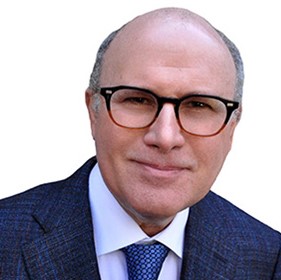Consider a Dazzling Alternative to the Robinhood IPO
The seamy underbelly of the capital markets is about to be put under a microscope. The catalyst is the coming out party for Robinhood Markets, Inc., one of the most popular trading platforms.
Managers at the online behemoth announced Thursday plans for an initial public offering (IPO). The Menlo Park, California-based company is growing fast, and executives expect to raise $100 million.
However, investors should skip Robinhood and buy MSCI Inc. (NYSE: MSCI) instead.
Robinhood didn’t get to online trading first, but the company has certainly upped the ante. Founders Vlad Tenev and Baiju Bhatt had the genius idea in 2013 of merging social media, smartphones and online investing. Then, the Stanford students schemed up a way to let investors seamlessly purchase odd lots of shares for free … sort of.
Trading on Robinhood isn’t really free. Eliminating commission payable by customers means collecting them elsewhere. And that’s where the business gets a bit sketchy. Robinhood racks up fees from market makers in exchange for routing client buy and sell orders their way for execution.
According to the S-1 filing Thursday with the Securities and Exchange Commission (SEC), only a few of these financial firms now make up 75% of Robinhood’s revenues.
Specifically, Citadel Securities accounted for 34% of sales, Susquehanna International Group contributed 18% and Wolverine Holdings made up 10%.
Worse, their contribution to the overall business is growing, up from 62% a year ago.
Keep in mind that market makers are on the other side of every retail trade.
Profit is a function of the spread between the bid price and the ask. The bigger the spread, the better the profit. And a system called payment for order flow kicks back a portion of that windfall to Robinhood on every transaction.
A lengthy study by BestEx Research argues these spreads could be narrowed by 25% if they were routed to a proper exchange.
Trading for Robinhood customers isn’t free. The fees are simply hiding in hefty spreads.
Those spreads, and the inherent dangers of relying on market makers, became apparent in February during the GameStop Corp. (NYSE: GME) trading frenzy. The meme stock zoomed from $17 to a high of $483 as short-sellers were forced to buy back rising shares. The frenetic pace of the advance led to ultrawide spreads, windfall profits for market makers and a barrage of trading outages for Robinhood customers.
The financial industry regulation authority deemed those outages did significant harm to customers. FINA announced Wednesday that Robinhood managers agreed to pay nearly $70 million to settle customer complaints. It is the largest penalty ever ordered, according to a CNBC report.
It also exposes the weakness of Robinhood’s business model: Its retail customers are the product.
That’s not a great look when the corporate brand takes its name from an outlaw who rose up to avenge being unfairly taxed by the Nottingham elite.
MSCI is also in the business of developing and selling information to financial services companies. The difference is the New York-based company is selling a product its well-heeled customers absolutely need.
On paper, the company looks like any other data analytics firm. Yet the product MSCI is selling is information about how it makes indexes. These are benchmarked by hedge funds, sovereign wealth managers, pension funds, insurance companies, brokers and the exchanges. Beating an MSCI index can be worth tens of millions of dollars in management fees.
MSCI has business relationships with 4,400 blue chip clients in 90 countries, according to a May investor presentation. And since 2015, the company has averaged 10% compound annual growth rates for revenues. Sales have risen from only $1.15 billion in 2016 to $1.9 billion through the first quarter of 2021.
More than 97% of revenue is recurring. The customer retention rate is 95%.
It all makes sense. Clients are in for the long haul because they can’t build their fee businesses without the insights and data MSCI staff provide.
That’s the business Robinhood managers want. Unfortunately, they can’t tell that story without laying bare the myth of their corporate brand.
Investors should ditch the upcoming IPO and consider buying MSCI.
Best wishes,
Jon D. Markman



